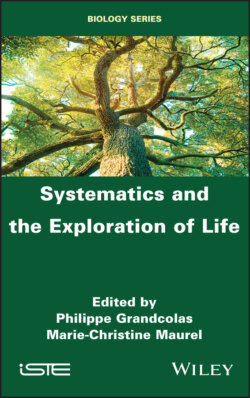Читать книгу Systematics and the Exploration of Life - Группа авторов - Страница 25
2.3. Substitution(s) in protein structures
ОглавлениеThe substitution of one amino acid by another (a mutation) is one of the fundamental events of molecular evolution, with variable consequences in proteins. The majority of mutations have no major effect on the phenotype – they are neutral – but some of them can cause disease (Studer et al. 2013). Indeed, local changes may occur in binding sites with other molecules and can thus affect the function of proteins (Gong et al. 2009), but long-term effects on the overall structure can also be observed (Zhou et al. 2007).
Many studies agree that the majority of substitutions have no significant effect on the overall structure, stability or function of the protein. As a matter of fact, it has been shown that 75% of the amino acids can be modified without significant alteration of the protein structure (Sander and Schneider 1991; Shakhnovich and Gutin 1991; Schaefer and Rost 2012). These observations support the neutral hypothesis of point mutations, but it is important to keep in mind that this does not mean that all mutations are neutral: the majority of point mutations are effectively counter-selected because their impact is negative for the cell. For example, the probability that a human DNA repair enzyme, 3-methyladenine DNA glycosylase, becomes non-functional after a random mutation is 34% (± 6%), and this proportion can be extended to other families (Guo et al. 2004).
